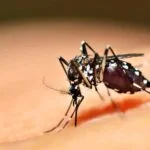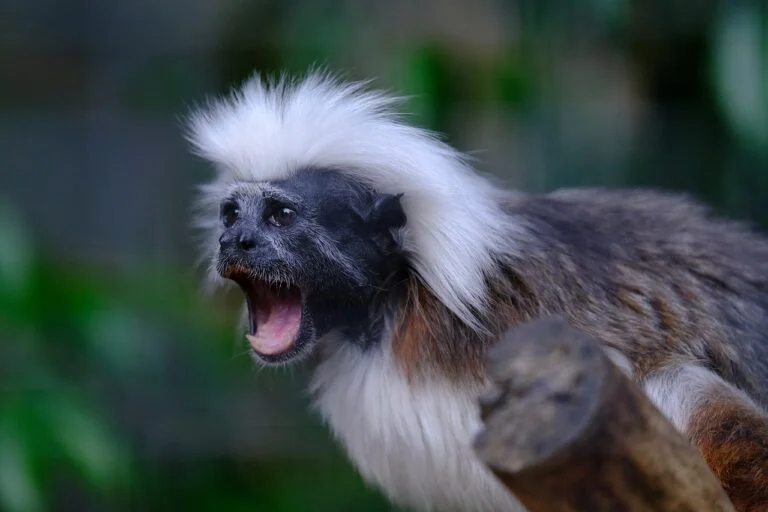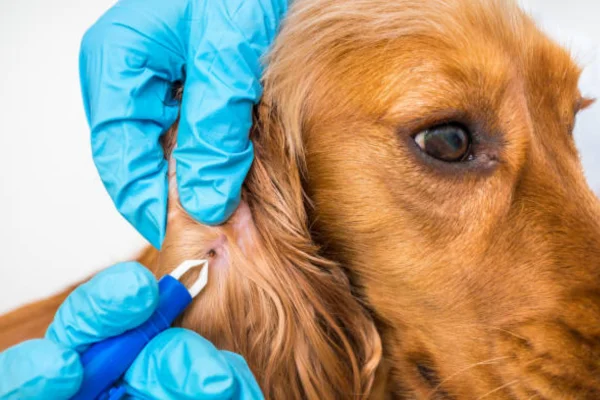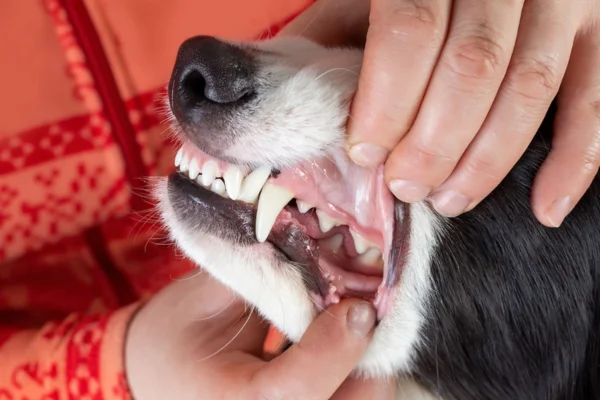The Truth about Yellow Fever in Brazil: Monkeys, Innocents and Our Allies
Introduction
Yellow Fever, a serious viral disease transmitted by mosquitoes, is a cause for concern in Brazil. Unfortunately, monkeys have been wrongly blamed for the spread of the disease, leading to misconceptions that harm these amazing creatures and damage the general understanding of the disease. In this article, we will address the issue of Yellow Fever in Brazil and clarify the importance of not blaming monkeys, presenting facts based on reliable sources.
The Reality of Yellow Fever
Yellow Fever is an acute viral disease that can lead to serious complications and even death. In Brazil, it is transmitted mainly by mosquitoes of the genera Haemagogus and Sabethes, found in forest areas and wild environments. Humans can contract the disease when they are bitten by infected mosquitoes. This information is supported by the Brazilian Ministry of Health.

The Role of Monkeys
Monkeys, such as howler monkeys, marmosets and tamarins, are hosts of the yellow fever virus. This means that they can be bitten by infected mosquitoes and contract the disease. However, it is important to note that monkeys are not responsible for spreading Yellow Fever to humans. They are victims of the disease, just like us. This information is supported by the Chico Mendes Institute for Biodiversity Conservation2.
Contents
Monkeys as Indicators
Monkeys play a crucial role in the early detection of the presence of the Yellow Fever virus in certain areas. When a monkey is found dead from the disease, it is a warning sign to health authorities that the virus is present in the area, requiring control measures to prevent the spread to humans. This information is confirmed by the Oswaldo Cruz Institute
The Importance of Monkey Preservation
Blaming monkeys for the spread of Yellow Fever is unfair and harmful to these animals. Monkeys play a vital role in forest ecosystems, as they are responsible for dispersing seeds and balancing the populations of other animals. In addition, their presence is indicative of healthy and biodiverse ecosystems. Preserving monkeys is essential to maintaining the integrity of natural ecosystems. This information is supported by WWF-Brazil
Prevention and Awareness Actions
To effectively combat Yellow Fever, it is essential to adopt appropriate prevention and awareness measures. Vaccination is one of the most effective ways of protecting yourself against the disease. In addition, it is essential to disseminate correct information about the transmission of Yellow Fever, emphasizing that monkeys are not to blame, but rather allies in detecting the presence of the virus. These measures are widely recommended by the Brazilian Ministry of Health
Fighting Disinformation
The spread of incorrect information about Yellow Fever and the blaming of monkeys are obstacles in the fight against the disease. It is necessary to combat misinformation by educating the population and encouraging awareness of the true nature of Yellow Fever transmission. This includes demystifying the misconceptions surrounding monkeys and highlighting their importance to the health of ecosystems. Raising awareness is a powerful tool for overcoming misinformation and protecting monkeys and humans.
The Importance of Scientific Research
Scientific research plays a key role in studying Yellow Fever and understanding its transmission. Through detailed studies, scientists have been able to confirm that monkeys are not responsible for spreading the disease to humans. This discovery was made possible thanks to the genetic analysis of the virus present in mosquitoes, monkeys and humans. The results of this research have been crucial in building effective strategies for the prevention and control of Yellow Fever.
The Socio-environmental Impact of Blame the Monkeys
Blaming monkeys for the spread of Yellow Fever has a negative impact not only on the lives of these animals, but also on the ecological balance of forests. When monkeys are persecuted and killed unjustifiably, there is an imbalance in food chains and seed dispersal, affecting biodiversity as a whole. In addition, the destruction of monkeys' natural habitat to make way for urban areas also contributes to the reduction in their numbers. It is essential to understand that monkeys are important living beings for the maintenance of ecosystems and must be protected.
The Role of Education and Awareness
Education and awareness-raising play a fundamental role in overcoming misinformation and protecting monkeys. It is necessary to promote educational campaigns that address the true nature of Yellow Fever transmission, emphasizing that monkeys are not to blame, but rather victims and allies in detecting the virus. In addition, it is important to encourage the appreciation of biodiversity and the preservation of ecosystems, highlighting the importance of monkeys and their contribution to the health of natural environments.
The Power of Solidarity: Protecting Monkeys and Public Health
Protecting monkeys in the fight against Yellow Fever goes beyond preserving biodiversity. It is an act of solidarity with these incredible creatures that share our planet. By protecting monkeys, we are directly contributing to the preservation of natural ecosystems and the maintenance of environmental balance.
Every time we blame monkeys and hunt them down, we are weakening ecosystems and opening the door to imbalance. Monkeys are our allies in the early detection of the presence of the Yellow Fever virus and in the protection of our collective health. By recognizing their importance and valuing their existence, we are strengthening the bonds between humans and animals, building a more harmonious future.
We must act with empathy and compassion, understanding that all living beings play a vital role in maintaining life on this planet. By protecting apes, we are protecting ourselves and future generations. Let's unite our efforts and become tireless defenders of these wonderful beings, working together to preserve the health and well-being of all.
The Importance of Vaccination
Vaccination is one of the main measures for preventing and controlling Yellow Fever. Through immunization, we can protect ourselves and the community against this potentially serious disease. The Yellow Fever vaccine is safe and effective, providing long-lasting immunity. It is essential that everyone is aware of the importance of getting vaccinated and ensuring that their vaccinations are up to date. By doing so, we are not only protecting ourselves, but also contributing to the control of the disease in our society.
Collective Responsibility in Yellow Fever Prevention
Preventing the spread of Yellow Fever is a collective responsibility. Each individual has the power to make a difference by adopting preventive measures and disseminating correct information about the disease. It is important that everyone engages in practices such as using repellents, wearing appropriate clothing in risk areas, eliminating possible mosquito breeding sites and seeking vaccination. In addition, health authorities need to invest in awareness campaigns and infrastructure to control the spread of the disease. Only by working together and raising collective awareness will we be able to effectively combat Yellow Fever and guarantee everyone's health and safety.
Conclusion
In conclusion, monkeys are not to blame for the spread of Yellow Fever in Brazil. They are victims of the disease and important allies in detecting the virus. Blaming them is unfair and detrimental to the preservation of these incredible creatures and to a correct understanding of the disease. It is our duty to combat misinformation, preserve monkeys and adopt appropriate prevention measures. Together, we can overcome Yellow Fever and ensure a healthy future for both monkeys and us humans.
Related sources
- Brazilian Ministry of Health - www.saude.gov.br
- Chico Mendes Institute for Biodiversity Conservation - www.icmbio.gov.br
- Oswaldo Cruz Institute - www.fiocruz.br
- WWF-Brazil - www.wwf.org.br
If you like our Prompt, please leave a comment.
Thanks for stopping by, check out our other work too
https://vettopbr.com/tosse-em-caes/
Thank you for visiting us.








